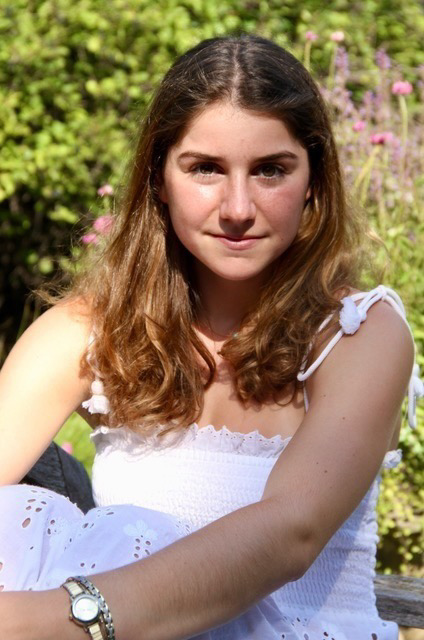A presidential scholar

Three questions with Pippa Pflaum '24
Of the estimated 5 million students who graduated this spring, just 161 were named Presidential Scholars. Pippa Pflaum’24 was one of them. The Presidential Scholars Program was established in 1964 by President Lyndon B. Johnson to recognize some of the nation’s top-performing high school seniors for their academic success, artistic excellence, technical expertise and commitment to service and leadership.
During her three years at Exeter, Pflaum was a student representative on the Community Conduct Committee, the head of accounting on The Exonian Business Board, co-head of the Exeter Student Service Organization Microfinance Club and captain of the field hockey team, among other endeavors.
What was your favorite class?
Physics 500 was a favorite despite being my most challenging class at Exeter. As a STEM focused student, I’m generally drawn to the kind of thinking and problem-solving physics engages. However, it was my teacher, Mr. DiCarlo, not the subject, that made the class an academic turning point. I learned physics, of course, but I also learned about myself as a learner. I discovered how much curiosity fuels my academic drive and that peeling back layers for discovery is where I tend to shine. Mr. DiCarlo consistently indulged my “why?” queries. He explored tangentially related topics with me, both deepening my understanding of the subject and encouraging me to keep asking, “How high is up?” His class gave me confidence to ask trickier questions and explore new ways of learning, including in other subjects.
How have you grown as a student/person?
Harkness had an outsized impact on me both as a student and more broadly as a community member. Every class had a dual benefit; I learned the subject and I learned how to quickly formulate my ideas then sort out the most effective way to express them. Harkness also enhanced my ability as an effective listener — and highlighted the value in continuing to grow as a listener. The better listener I became, the more I learned and ironically, the more I had to say about or question the subject at hand. All this moved me forward as a student, but it also moved me forward as a more engaged, conscientious and valued community member. Becoming a better listener, thinker and contributor is one of the indelible marks Exeter has left on me.
As a Presidential Scholar, you were offered the opportunity to honor your most influential teacher with a personal letter from the Secretary of Education. Whom did you name?
I chose to honor my upper year English teacher, Ms. Dean. This is a bit ironic because I have always felt most comfortable with, got most excited about, and excelled most in math and sciences. However, Ms. Dean’s class shifted how I view myself as a student. She helped me become more comfortable as a writer, pushing me to take risks with both style and content. When she noted I often use humor in my writing, she suggested I explore this with new techniques. She encouraged me to try things like extensive footnotes, switching to second-person narration and (yikes!) using run-on sentences as a stylistic tool. At first, overhauling my writing style overwhelmed me. The process was tricky and uncomfortable. But after seeing how these techniques let me experiment with my humor, even when writing about something serious, I embraced them. My writing improved, but most importantly, Ms. Dean helped me discover that the joy of creative problem-solving for me is not limited to math and sciences.